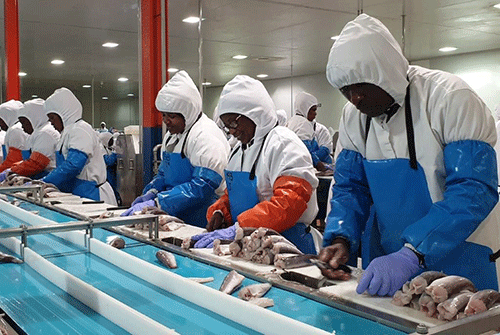WALVIS BAY – The Namibian government has generated N$110 million from the sale of 15 000 metric tonnes of hake.
Only 2 700 tonnes from the governmental objective quota was not bought at the auction in December last year.
According to a statement issued by the fisheries and finance ministries which facilitated the auctioning of fish, 9 600 metric tonnes (MT) was set aside as the wet quota while 2 700 MT was set-aside for freezer.
Seven bids were received for the wet quota while three bids were received for the freezer quota.
“The wet quota generated N$82.4 million while the freezer quota generated N$27.5 million,” the statement reads.
A further N$10 000 was raised from application fees.
“The ministry considers the hake auction a success, as shown in improved prices from the reserve price of N$7 000 to an average of N$8 592 for wet hake and N$9 000 to N$10 207 for freezer hake. Such an outcome confirms that auctioning remains a good mechanism to facilitate price discovery in the sector and allocate natural resources to the market,” the statement reads.
The fishing industry players yesterday welcomed the fact that the auction took place before the start of the hake season.
“It is good that the ministry took into account the issues raised by the industry. The previous late auctions were indeed a challenge for our planning,” a hake industry player said yesterday.
According to them, early auctions gave companies ample time to do proper planning for the current fishing season. Fisheries minister Derek Klazen last year vowed to make sure that governmental objective quota auctions take place on time after companies could not catch horse mackerel quotas bought on auction.
The uncaught quota had to be reallocated.
“This will not happen again,” Klazen said during that time.



